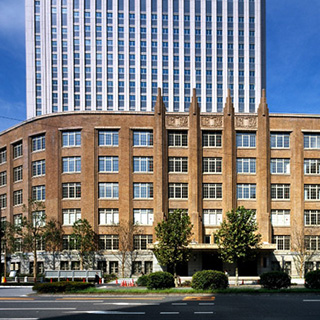In order to achieve the “goals of the Strategy for Sports Nation” outlined in Section I above, and based on the “basic concept”, i.e.
1. A focus on persons (participants, spectators, supporters/educators);
and
2. Promotion of collaboration and cooperation,
five key policies to be implemented have been set, as follows:
(1) Creation of athletic participation opportunities proportional
to life stage; and
(2) Development and reinforcement of top athletes
to compete on the world stage; and
(3) Creation of a “virtuous cycle”
through cooperation and collaboration within the sports industry; and
(4) Measures
to increase transparency, fairness and equity in the sports industry; and
(5) Measures
to develop infrastructure to ensure support for sports from the entire society.
The basic concept is explained below.
1. A focus on persons (participants, spectators, supports / educators)
○ To live a happy and prosperous life through sports should be one of the rights to be guaranteed to all people. Opportunities must be guaranteed to participate in activities to get familiarized with, enjoy, support, and encourage sports under the individual initiative and in the safe and equitable environment in accordance with individual interests and aptitudes.
○ From this viewpoint, a focus should be placed not only those who actually “participate” in sports, but also those “who watch” sports, such as spectators at high-level sports competitions and professional sports leagues, and those who “educate /support ” sports, e.g. instructors and sports volunteers, in efforts to build an environment in both hardware aspects (facilities, etc.) and software aspects (programs, instructors, etc.) in which people can enjoy sports throughout their life.
○ Specifically, measures will be undertaken to ensure and increase opportunities for people to take part in sports in their local communities and to foster physical education and sports club activities at school. An environment in which top athletes competing on the world stage can concentrate to optimize their performance without worry or concern should be built and necessary support should be provided to top athletes, instructors, and umpires. Furthermore, a bid to host an international sports competitions, as well as actual organization of such events, should be proactively supported.
○ Management of sports associations, which play an important role in encouraging the practice of sports in Japan and upgrading Japan’s competitiveness, will have a great impact on individuals engaged in sport activities, e.g. athletes and instructors. Also, substantial amounts of public funds not only government funds but also subsidies from the national sports promotion funds and the sports promotion lottery - are invested in the sports industry. The sports industry therefore bears the responsibility to make use of these financial resources in an effective and efficient manner to develop and reinforce athletes, encourage the practice of sports, and to have a structure in place that ensures proper governance of these associations in order to remain entitled to these public funds.
○ For this purpose, the national government will liaise and cooperate with sports associations to enhance the governance of these associations, design dispute resolution systems, and to undertake measures to prevent and combat doping in sport, thereby building a more transparent, fairer and more equitable sports industry.
2. Promotion of cooperation and collaboration
○ In order to encourage the practice of sports, make sports part of life and get people familiarized with sports, it is necessary to bring together community sports clubs, schools, local public authorities and corporations, beyond their differences in terms of their organizational structures and profiles, so as to remove barriers between competitive sports and community sports and to create a virtuous cycle of human resources.
○ In other words, by giving back to a local community the excellent skills the top athletes have acquired, their vibrance, as well as communication and management abilities they have nurtured through sports, it may be possible to improve motivation among people including youngsters to participate in sports and new talent may be unearthed in local communities. Creation of such a virtuous cycle of human resources will help encourage the practice of sports and contribute to increasing a top athlete's performance level.
○ Specific measures to be proactively implemented for this purpose include: deployment of retired top athletes at comprehensive community sport clubs that should serve as a hub (“hub clubs”) with a view to providing high quality sports programs to local residents; and services to send these retired athletes to schools as visiting physical education teachers. Also, in order to make sure that the skills and abilities that the top athletes have acquired through competition should be given back to the society, establishment of a new integrated system will be considered to grant scholarships aimed at facilitating career development and to offer referral services to corporations and comprehensive community sport clubs (“comprehensive clubs”).
○ Also, from the viewpoint of upgrading Japan’s sports industry as a whole, associations with excellent skills, competencies, and facilities are requested, not only to focus on the development of their own associations, but also to make what they have available to others and to express their willingness to share and benefit from one another. It is therefore necessary to bring together community sports clubs, schools, local public authorities, sports associations and corporations, in order to enhance interdisciplinary cooperation within the sports industry and to develop a structure under which concerted efforts should be made by the entire sports industry to promote sports.
○ It should also be noted that sports are one of the universal human cultures and that sports exchange programs on a global scale including international competitions are actively organized. These programs provide greater opportunities for many Japanese people to proactively and internationally cooperate and collaborate with peoples abroad, which in turn should help facilitate understanding of Japan, establish fraternal relations, and raise the profile of Japan in the sports industry.
○ At the same time, sports are instrumental to building networks of local residents and to bring a sense of unity to local communities, thereby making a significant contribution to the creation of social capital. The ongoing initiative to deploy comprehensive clubs aims to facilitate cooperation and collaboration between residents through networks of families and the society where everyone knows everyone, thereby improving regional sports environments in which people can enjoy sports as they wish.
○ In so doing, we need to move away from the conventional concept of free public services offered by the administration and to facilitate the creation of “New Public Commons” embodied by community sports clubs that are regarded as not-for-profit type organizations voluntarily managed with membership fees and donations from local residents and that fall under the NPO Act.
○ At the same time, in order to encourage participation in the creation of such “New Public Commons” based on sports, it is necessary to ensure there is broad understanding of the significance and value of sport among the general public. For this purpose, measures will be undertaken to encourage the sports industry to proactively make social contributions and discharge its accountability, by providing an opportunity for top athletes and instructors whose activities are supported by public funds to speak to the general public directly about what they do and what achievements they have made as a result thereof. Also, a nationwide campaign will be launched in order to raise interest in, and promote awareness of, sports among the general public, and tax measures to encourage sports donations from a broad basis will be considered.
(Policy Planning Division, Sports and Youth Bureau)




